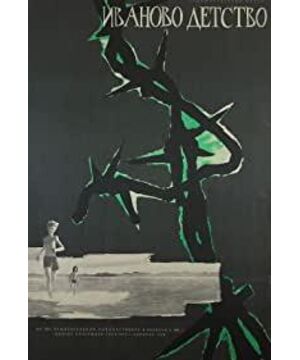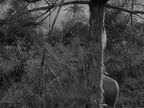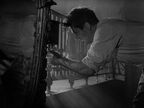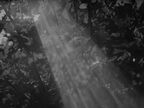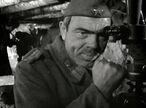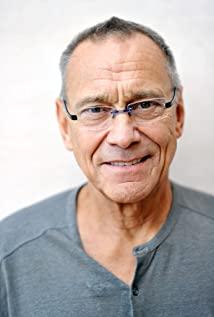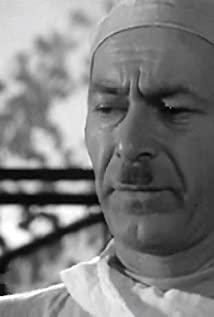Andrei Tarkovsky was a Soviet director. Bergman said: "He created a new film language, capturing life like a reflection, like a dream." "Ivan's Childhood" is his first feature-length film, which won the Venice Golden Lion Award in the same year. The film marks the arrival of a great formalist in contemporary film and is also a representative work of war-themed films during the "thaw" period of the Soviet Union. "Ivan's Childhood" is a 1962 war-drama film produced by the Moscow Film Studio, directed by Andrei Tarkovsky. Tarkovsky was born in the Soviet Union in 1932 and died in 1986 at the age of 54. Although his life was not long, almost all the works he left behind have become classics. His film career stems from his exploration and quest for "what is the essence of film art", and the films he creates are full of elements that he calls "poetic logic", reflecting his unique film values. Although the current film critics define Tarkovsky, they all love him as the old tower, and they are almost always praised and rarely criticized. But that wasn't the case at the time of his films. In Tarkovsky's book "Sculpting Time", he mentions that among the audience who wrote to him, some people said that his film "Mirror" was "How filthy, how filthy! Bah, it is disgusting! I think , the most important thing is that your movie doesn't understand what it says, and it can't impress the audience at all." Of course, there are also many constructive comments that encouraged and supported him, and he mentioned the strength of these comments in his works.
Having said so much, what I actually want to say is that no master was only praised in the era when he was popular. So, because of such facts, we may be able to look at Tarkovsky's work from a more objective point of view.
This "Ivan's Childhood" is his first feature-length feature film after he studied at the Soviet Film Academy and completed his graduation short film. And this film, according to the description in his book, was actually taken over in the middle of the project. "Ivan's Childhood" original novel "Ivan" is a novel with a strong story, with a strong documentary style, which is obviously very different from the film style presented by Tarkovsky. Tarkovsky successfully presents a "intersection of dream and reality" in the film, which he himself would classify as "poetic aesthetics".
In order to illustrate his main characteristic "poetic aesthetics", the following content may be more abstract. In order to facilitate everyone's understanding, let's start with a simple form. Formally, the difference between his films and psychoanalytic films is that the audience cannot precisely distinguish between "dream and reality" using anchor points. That is to say, in his films, dreams are mixed with reality, and reality is also Will be immersed in a dream.
For example, although there are clearly several paragraphs of Ivan's dream in the middle of the film, in fact, in the story "real life", elements of the dream are actually mixed, such as the words that appeared on the wall at the beginning, and the last appearance in the concentration camp. The eight gallows inside, these words are very similar to what Ivan wrote on the wall when he was finally imprisoned in the concentration camp. It should be written on the wall of the prison. It could not have appeared in the barracks where he met the lieutenant. middle. But it's just there.
In general psychoanalytic films, dream scenes are separated from reality, and elements of dreams are generally not mixed into reality scenes. Such examples abound, but we use this example to briefly describe the difference between Tarkovsky's "poetic logic" and "psychoanalytic films" in form. But in fact, this difference in form is fundamentally derived from the difference in the concept of film.
What Tarkovsky chose was to get away from this "dramatic logic" that oversimplifies life as much as possible, starting from the "surprising details of life that the playwright could not have imagined" that reflected life. to construct his own film material.
For example, the cuckoo's call in the film "Ivan's Childhood" comes from his own childhood memories. He took a sip of water, then said enthusiastically to his mother, "Mom, it's the cuckoo!" The playwright may well construct a scene in which he hears the bird call to reflect the intimacy between the son and the mother, based on the dramatic idea. , however, he was unable to construct something "beyond theatrical goals" based on "dramatic ideas".
And these astonishing details, such as the unusual surprise when the child talks about the cuckoo, or the scene in the dream where the truck passed by the apple and the horse came to eat it. These details are not constructed according to "dramatic logic", in other words, they may not play a role in the plot, but the existence of these details can evoke a peculiar feeling in people's heart, so that they form an emotional point of view A kind of resonance, this kind of feeling is similar to the ambiguity and expressiveness of poetry. It feels that it not only has space for aftertaste, but also accurately conveys the feeling. And this is what he calls "poetic logic." As Tarkovsky's early work, "Ivan's Childhood" actually still retains a lot of linear narrative or "dramatic logic" elements, but the wonderful and indescribable exquisite film language in it has made many people see it. When it comes to "It turns out that the movie still has this way of shooting", it is really a very remarkable direction.
At the 23rd Venice Film Festival, the film "Ivan's Childhood" was praised by the judges and won the Golden Lion Award. And this is of special significance to Tarkovsky himself. He feels that "he is qualified to create according to this idea from now on."
From today's point of view, "Ivan's Childhood" does not seem to be as mature and complete as his later works, but it is an important work that enables Tarkovsky's "poetic logic" film concept to be established. The reason why it took so long to introduce Tarkovsky is mainly because if this creative idea is not clarified, then there may be many difficulties in interpreting the film, and then we will talk about some "Iranian" Wan's Childhood" related understanding. In fact, there is no closed interpretation of this kind of story. Because "poetic logic" is inherently ambiguous, the narrative and theme of the film are ambiguous in one main direction. Here are some important points for you: In the movie, Ivan, Lieutenant and He Lin are three people of completely different ages and identities, but the director used a lot of camera language, so that the impression of the three of them, by the end of the movie approximately coincident.
First of all, as mentioned earlier, on the walls of the lieutenant's room, there are words that should have been on the walls of Ivan's cell. For example, in this shot, Ivan and the captain cast obvious shadows on the wall, but the director deliberately adjusted the angle of the light source and the actors' positions so that their shadows were almost exactly the same.
For another example, both He Lin and the lieutenant liked Martha, and when He Lin said goodbye to Ivan later, the director used a very unconventional method to completely turn the lieutenant into a shadow, and then asked He Lin to cover him. It was as if the lieutenant and Herring became one person. Another example is that at the beginning, only Captain He Lin had scars, but in the end, all three of them had linear scars on their faces.
But what we need to pay attention to is that Tarkovsky's films are open-ended, so these techniques do not have precise settings like psychoanalytic films, they just give people a feeling. In fact, his sister who ran with Ivan in the end was actually somewhat similar to Martha. Perhaps, Lieutenant Ivan and Herring can be considered as three distinct stages of a person, childhood, youth and adulthood (the adulthood is narrowly excluding youth).
The film focuses on describing several of Ivan's dreams, all related to women, his mother and sister. Ivan is eager for love. But when he returned to reality, he only had the idea of revenge. In the film, the director described the impact of the war on Ivan, expressed the destruction and major blow to human civilization caused by this disaster, and accused the inhumanity of the war. I think that's the real meaning of his films. But at the level of characterization, Tarkovsky said in "Sculpting Time": ""Ivan's Childhood" tells the story of the people's desire for brotherhood in a barbaric era when foreign enemies invaded and killed each other. That is, the ideals of brotherhood, love, and divine tranquility gave rise to the genius of the Holy Trinity." And I think that's why the more I go to the back, the more the images of Ivan Harin and the lieutenant overlap.
In hard times, when wars are brutal, people are brothers, and they are like a "trinity" to each other: you have me, I have you, but love and support each other. And this kind of love and tranquility that shines in the midst of war, it is really not simple to use such a poetic film to embody it. In fact, there are many, many elements in the movie, but it is impossible to explain them one by one because of the relationship of time. If you are interested, please be sure to watch the original film, and you can feel a real dream and poetic beauty. But it must be stated that this kind of film is not acceptable to everyone. Because in fact, most audiences like the dramatic logic of the big plot. And this is also an important reason why Tarkovsky mentioned at the beginning was evaluated by some people as "unintelligible".
In fact, the preference for movies is personal, and there is no need to force it. But when we come into contact with a form that we have not encountered before, and we can appreciate the unique beauty of this art form from an angle that we could not observe before, it is actually a very happy thing.
View more about Ivan's Childhood reviews


